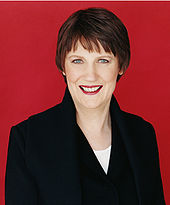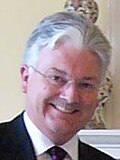
Back Élections législatives néo-zélandaises de 2005 French Elezioni generali in Nuova Zelanda del 2005 Italian 2005년 뉴질랜드 총선 Korean Wybory parlamentarne w Nowej Zelandii w 2005 roku Polish
| ||||||||||||||||||||||||||||||||||||||||||||||||||||||||||||||||||||||||||||||||||||||||||||||||||||||||||||||||||||||||||||||||||
All 121 seats in the House of Representatives, including one overhang seat 61 seats needed for a majority | ||||||||||||||||||||||||||||||||||||||||||||||||||||||||||||||||||||||||||||||||||||||||||||||||||||||||||||||||||||||||||||||||||
|---|---|---|---|---|---|---|---|---|---|---|---|---|---|---|---|---|---|---|---|---|---|---|---|---|---|---|---|---|---|---|---|---|---|---|---|---|---|---|---|---|---|---|---|---|---|---|---|---|---|---|---|---|---|---|---|---|---|---|---|---|---|---|---|---|---|---|---|---|---|---|---|---|---|---|---|---|---|---|---|---|---|---|---|---|---|---|---|---|---|---|---|---|---|---|---|---|---|---|---|---|---|---|---|---|---|---|---|---|---|---|---|---|---|---|---|---|---|---|---|---|---|---|---|---|---|---|---|---|---|---|
| Opinion polls | ||||||||||||||||||||||||||||||||||||||||||||||||||||||||||||||||||||||||||||||||||||||||||||||||||||||||||||||||||||||||||||||||||
| Turnout | 2,304,005 (80.92%) | |||||||||||||||||||||||||||||||||||||||||||||||||||||||||||||||||||||||||||||||||||||||||||||||||||||||||||||||||||||||||||||||||
| ||||||||||||||||||||||||||||||||||||||||||||||||||||||||||||||||||||||||||||||||||||||||||||||||||||||||||||||||||||||||||||||||||
 Results by electorate, shaded by winning margin | ||||||||||||||||||||||||||||||||||||||||||||||||||||||||||||||||||||||||||||||||||||||||||||||||||||||||||||||||||||||||||||||||||
| ||||||||||||||||||||||||||||||||||||||||||||||||||||||||||||||||||||||||||||||||||||||||||||||||||||||||||||||||||||||||||||||||||
The 2005 New Zealand general election on Saturday 17 September 2005 determined the membership of the 48th New Zealand Parliament. One hundred and twenty-one MPs were elected to the New Zealand House of Representatives: 69 from single-member electorates, including one overhang seat, and 52 from party lists (one extra due to the overhang).
No party won a majority, but the Labour Party of Prime Minister Helen Clark secured two more seats than nearest rival, the National Party of Dr Don Brash. With the exception of the newly formed Māori Party, which took four Māori electorates from Labour, most of the other parties polled lower than in the previous election, losing votes and seats.
Brash deferred conceding defeat until 1 October, when National's election-night 49 seats fell to 48 after special votes were counted. The official count increased the Māori Party share of the party vote above 2%, entitling them to three rather than two seats from the party vote. With four electorate seats, the election night overhang of two seats was reduced to one, and as National had the 120th seat allocated under the party vote, National lost one list seat (that of Katrina Shanks) that they appeared to have won on election night.[1]
The election was a strong recovery for National which won 21 more seats than at the 2002 election, where it suffered its worst result in its history, and the highest party vote percentage for the party since 1990; indeed, National saw its first vote share gain since 1990. Despite its resurgence, National failed to displace Labour as the largest party in Parliament. National's gains apparently came mainly at the expense of smaller parties, while Labour won only two seats less than in 2002.
On 17 October, Clark announced a new coalition agreement that saw the return of her minority government coalition with the Progressive Party, with confidence and supply support from New Zealand First and from United Future. New Zealand First parliamentary leader Winston Peters and United Future parliamentary leader Peter Dunne became ministers of the Crown outside Cabinet, Peters as Minister of Foreign Affairs and Dunne as Minister of Revenue. The Green Party which had supported Labour before the election received no cabinet post (see below), but gained several concessions from the coalition on matters such as energy and transport, and agreed to support the government on matters of confidence and supply.
- ^ Levine & Roberts 2007, pp. 91, 92.
© MMXXIII Rich X Search. We shall prevail. All rights reserved. Rich X Search







